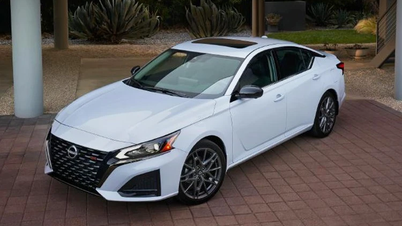The House of Representatives has passed President Donald Trump's "Great Big Bill," sending the massive $150 billion defense bill to the president's desk ahead of the July 4 deadline.
The bill, which passed 218-214, was approved after much struggle. Republican leaders drafted the bill using a process known as budget reconciliation, which allows a party with a slim majority in both chambers of Congress to pass legislation without the threat of opposing parties blocking it.
Republicans, however, have struggled over the specifics of the broad measure, which includes $150 billion for defense, more funding for border security, an extension of tax cuts enacted during the first Trump administration and major spending cuts to programs like Medicaid and the Supplemental Nutrition Assistance Program.

House Speaker Mike Johnson (R-LA) left the House Chamber after the vote. Photo: Kayla Bartkowski
Failure to pass the bill would be disastrous for the Pentagon, whose fiscal 2026 budget is built on additional funding from the reconciliation process.
In a dramatic moment last night, it appeared the bill did not have the necessary Republican votes to pass. Five Republican lawmakers voted against a procedural move to advance the bill — enough to block it from moving forward — while eight other Republicans delayed the vote.
Over the course of several hours, House Speaker Mike Johnson was able to convince all Republican lawmakers to vote in favor of the bill except one: Rep. Brian Fitzpatrick of Pennsylvania. Both Fitzpatrick and Rep. Thomas Massie of Kentucky opposed the bill in the final vote.
Because the House chose to pass the Senate version of the bill without changes, the Senate Armed Services Committee's version of the defense spending increase will go into effect.
Under the latest bill, spending includes:
- - $29 billion for shipbuilding and other spending related to the marine industrial base. This funding is critical for the Navy to be able to pay for the 16 ships requested in the FY26 request, including two Arleigh Burke-class destroyers and a second Virginia-class submarine.
- - $25 billion for Golden Dome, the domestic missile shield that is one of Trump's biggest defense priorities with an estimated total cost of $175 billion.
- - $25 billion for ammunition, allocated to multiple programs. The latest version of the SASC bill adds an additional $5 billion for critical mineral supply chains.
- - $16 billion to accelerate advanced technologies like drones, AI, and low-cost weapons. In the latest amendment to the bill, SASC increased funding for the Strategic Capabilities Office from $250 million to $600 million.
- - $15 billion for nuclear modernization, with the latest version of the bill adding $150 million to accelerate nuclear weapons delivery programs and cutting $96 million from classified spending.
- - $12 billion for Indo- Pacific deterrence requirements. In the latest amendment to the bill, SASC removed $5.1 billion in space funding from this section, adding $1 billion for the X-37 space plane and $3.6 billion for military satellites, among other space investments.
- - $9 billion for air superiority. The latest version of the bill removes $1 billion in spending for classified programs and adds $600 million for the Air Force's long-range strike aircraft program and $500 million for a Navy long-range strike aircraft — neither of which was included in the budget bill that was introduced in the House earlier.
Source: https://khoahocdoisong.vn/150-ty-do-ngan-sach-quoc-phong-my-vua-thong-qua-chi-vao-dau-post1552474.html


































































































Comment (0)